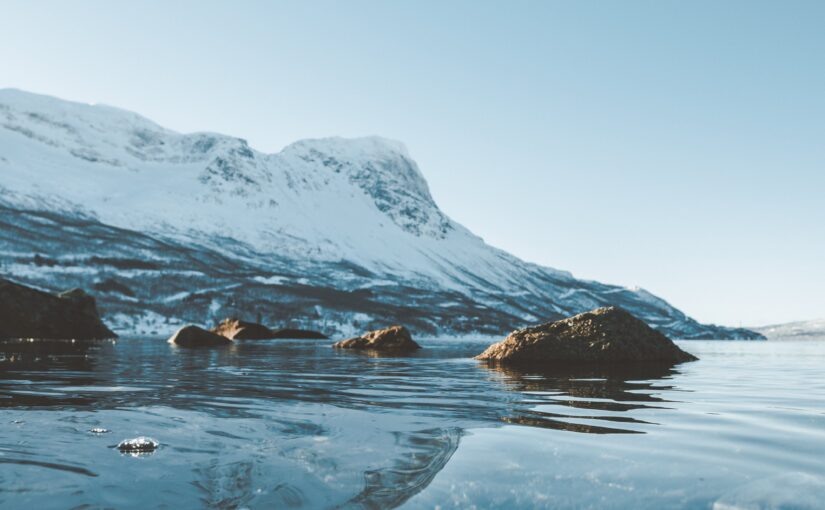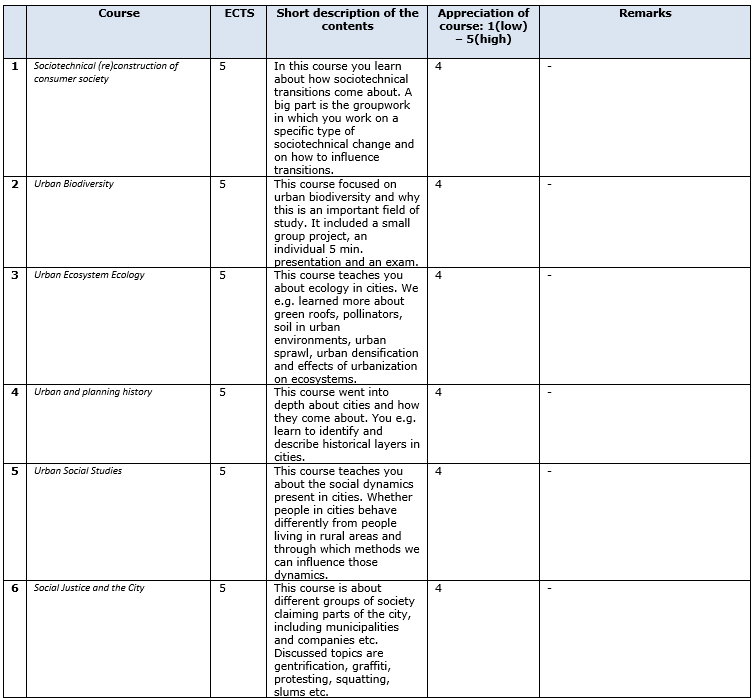Field of study in Wageningen: Urban Environmental Management
Study period exchange: 11/01/2023 – 31/05/2023
Country (exchange): Finland
City (exchange): Helsinki
University (exchange): University of Helsinki
Faculty (exchange): Faculty of Environmental and Biological Sciences
2. Motivation for exchange
Why did you choose to go on study exchange?
I wanted to go out of my comfort zone and see how my field of study is tackled in other countries.
What is the reason you chose for this country/university?
This university offered courses that were in line with my field of study (Urban Studies). Furthermore, the university was well rated in the international university rankings. I was also interested in the education system of Finland and the country in general.
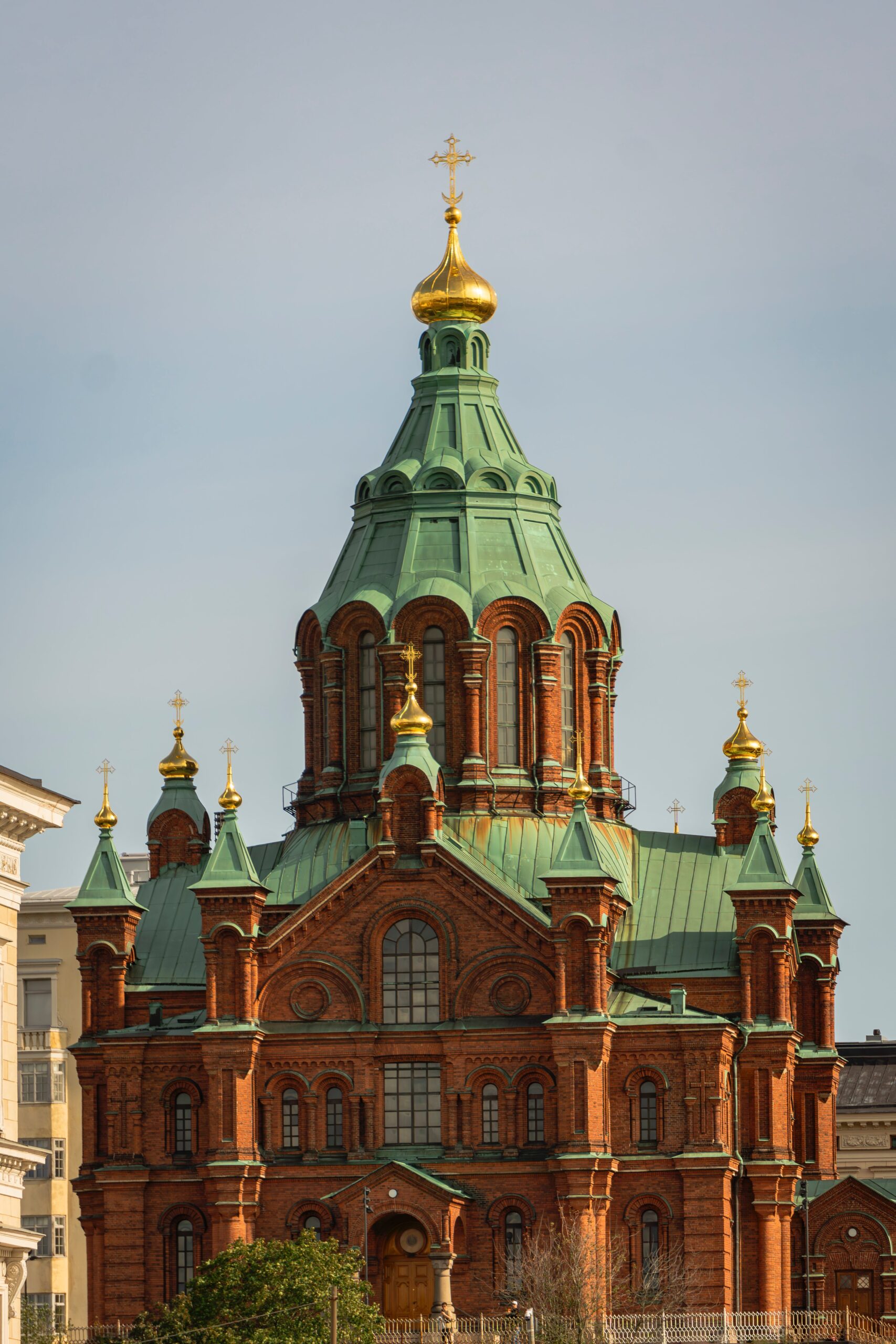
3. Accessibility to reach destination
Do you have any tips to reach your exchange destination?
I chose to take the plane from Amsterdam to Helsinki. From Helsinki airport you can either take the train and bus to your accommodation, or a taxi (Uber or Bolt, which is what I did). I also spoke to people that took the train or Flixbus to Stockholm, and took the boat from Stockholm to Helsinki. You can also take the boat from Stockholm to Turku, and then the train from Turku to Helsinki (this boat is usually cheaper). Boat tickets are cheaper when you travel with two, three or four people (because it reduces the price of a boat cabin). Train tickets from Turku to Helsinki can be bought on this website https://www.vr.fi/aikataulut. If you worry about not being able to get your big suitcase to the exchange destination (because you are taking the bus/train and boat), you can decide to send a parcel with your stuff by post. I sent a parcel from Helsinki to Wageningen by post (using this postal service https://www.posti.fi/palvelutverkossa/lahettaminen/#/ulkomaanPaketti/alue) and it arrived within 7 days.
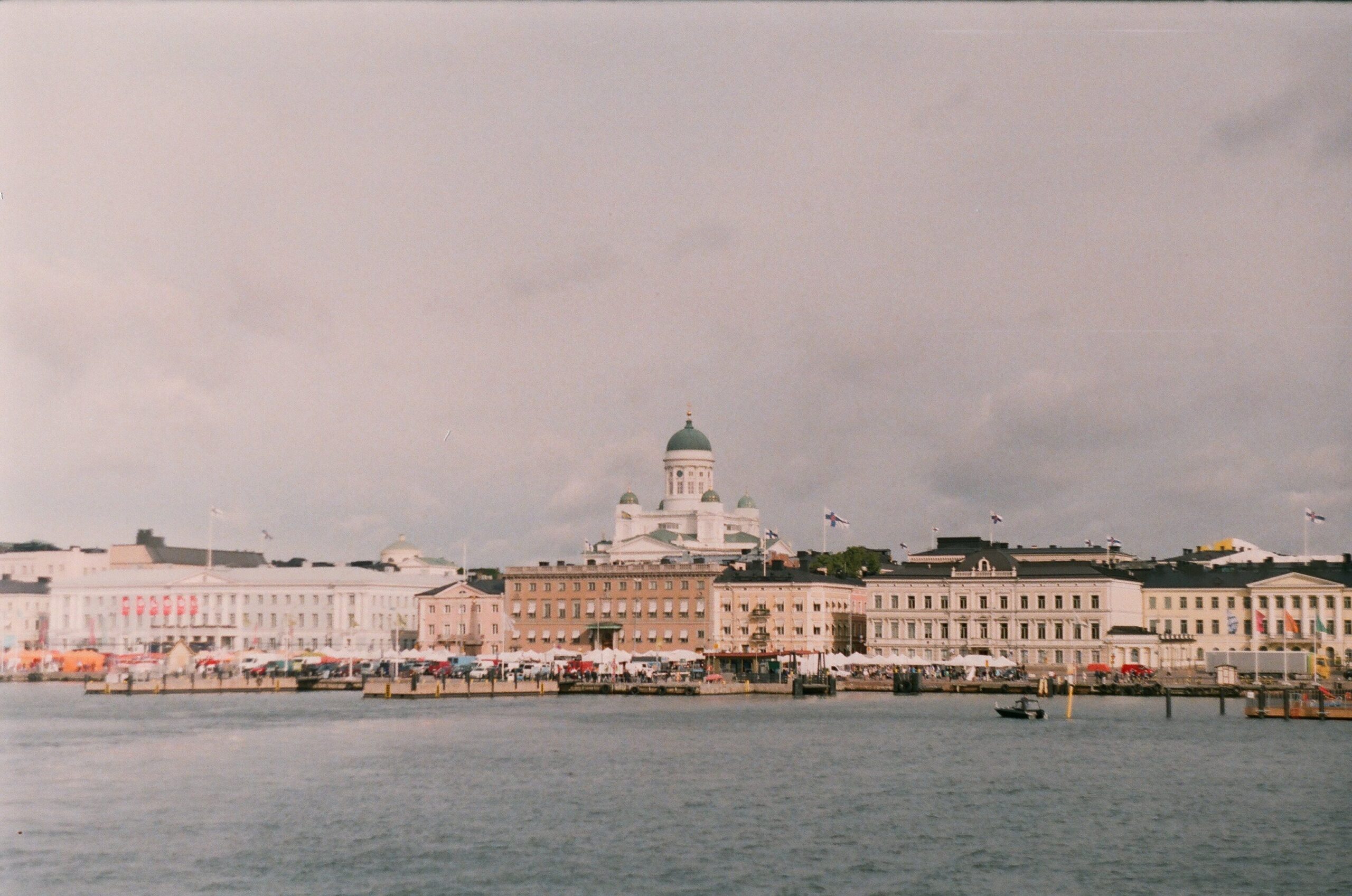
4. University and studying
Could you provide some general information about the followed courses?
How is the study formalized?
For every course you had to read literature. You also had to work on group reports and give a presentation afterwards. For most of the courses, you also had to do an individual assignment, either an essay or write a lecture diary. The lecture diary is a reflection of the lectures in which you critically discuss what was discussed in the lecture and what you learned from it. The academic level seemed similar to the level in Wageningen. The difference is that you have less contact hours and therefore get more freedom to work on the courses at the time you like. This was very practical, because it allowed me to combine cool trips around the country with working on my courses.
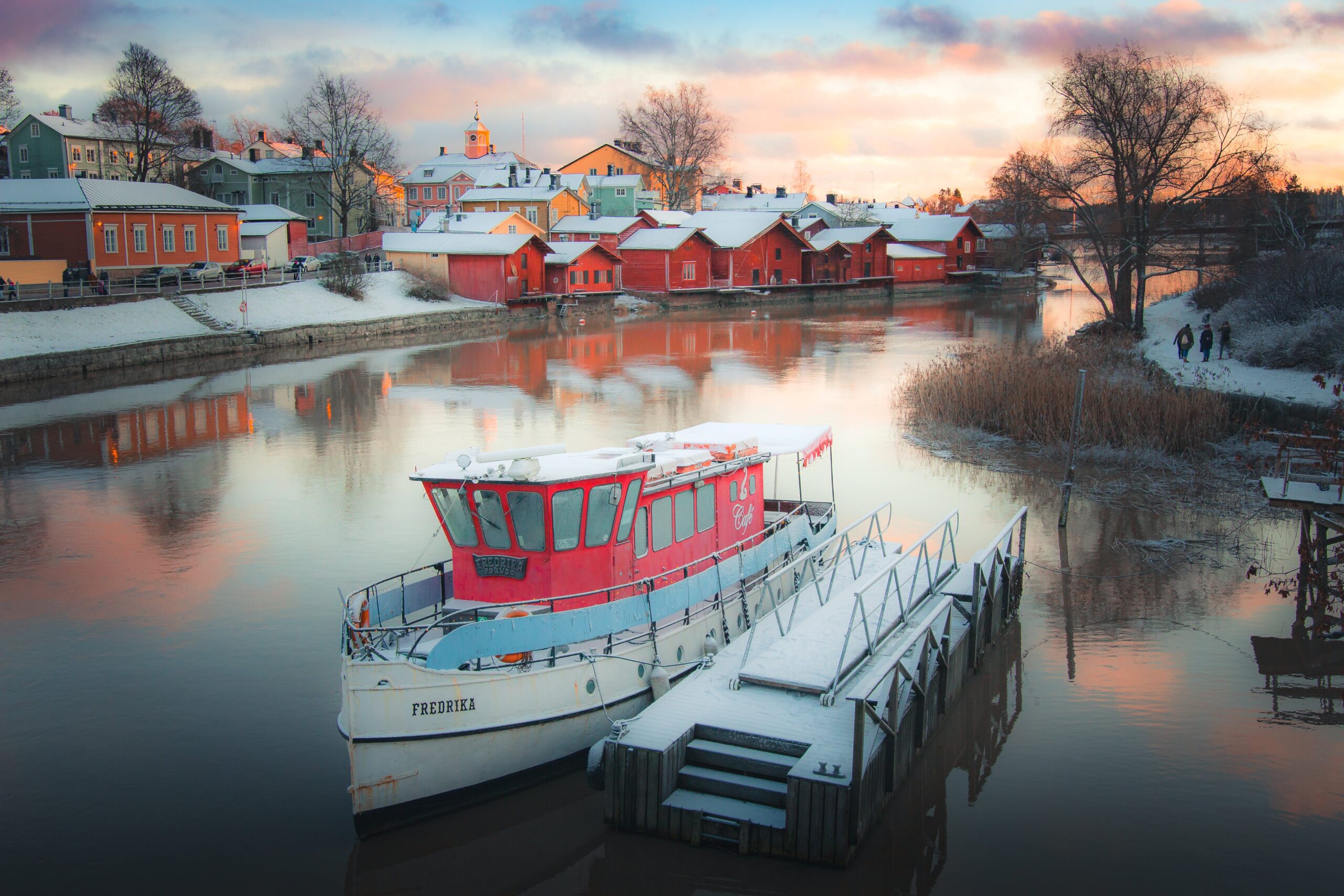
What is the culture of the university?
The lecturers are very approachable. In emails, it is common to address the lecturers by their first name. The classes also seemed smaller, which made it easier to ask questions during lectures or seminars. Even though the fins are known to not be very extraverted and outspoken, they do speak up when they have something to say during lectures. It even happened a few times that students corrected lecturers in a lecture, or spoke up to add something interesting to the topic.
What does the university offer the student additionally?
The university offers sports facilities, called Unisport. You can get a discount for this facility with your student account, and they are located on basically every campus. Furthermore, every campus has Unicafes. In these cafes, you can get a full meal (with as much food as you like) for lunch for only 2.80 eu. To get lunch for this price you need a membership of the student union, which is about 25 eu. With this membership you also get discounts at many stores, for example Scandinavian outdoor stores (if you need warm clothes) or on the boat to Tallinn or Stockholm (if you want to plan a trip to one of these cities). Being a student also allows you to get a discount of public transportation. A month of free travelling by public transport in Helsinki was 43 eu. Furthermore, being a student allows you to get discounts on train tickets to other cities in Finland.
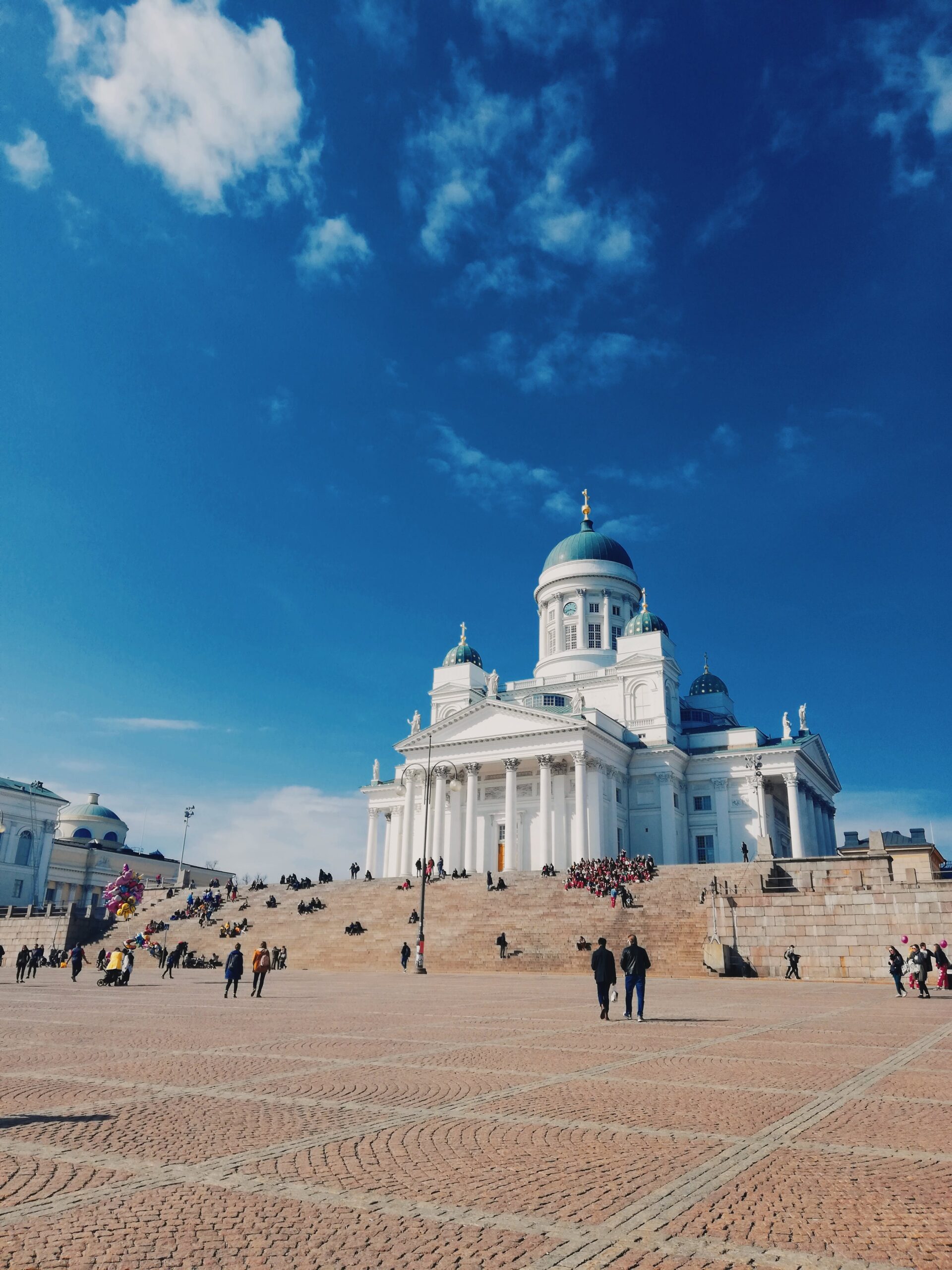
5. Housing-travelling-living
What are the possibilities for housing?
When you sign up as an exchange student to the university, you get the opportunity to sign up for rooms. There are shared apartments (around 400 eu p/m) and studios (around 600 eu p/m). In our semester most people got a studio, because the shared apartments have limited space. When you are enrolled in the department of forestry, agriculture, biological or environmental sciences you can also sign up for a shared apartment in the Latokartano Student Village (https://www.latokartanonyokyla.fi/pagesinenglish/37_). You can also use the facebook group “Vuokra asunnot helsinki“ to find housing.
What is the culture of the country like?
People are more introverted, nobody greets each other on the street and personal space is highly appreciated. Furthermore, public transportation (in Helsinki), governmental services and the university services are well arranged. In terms of pricing, I felt like fruits and vegetables were quite expensive compared to the Netherlands. They are also never ripe because most of the food is imported.
Could you give a general price indication of the place of residence compared to living in Wageningen?
In Helsinki I lived in the Latokartano Student Village (10 min. walking from the Viikki campus, the campus where I had half of my classes, and 30 min. by bus from the city centre). In Helsinki I paid 230 eu p/m. In Wageningen I pay 420 eu p/m.
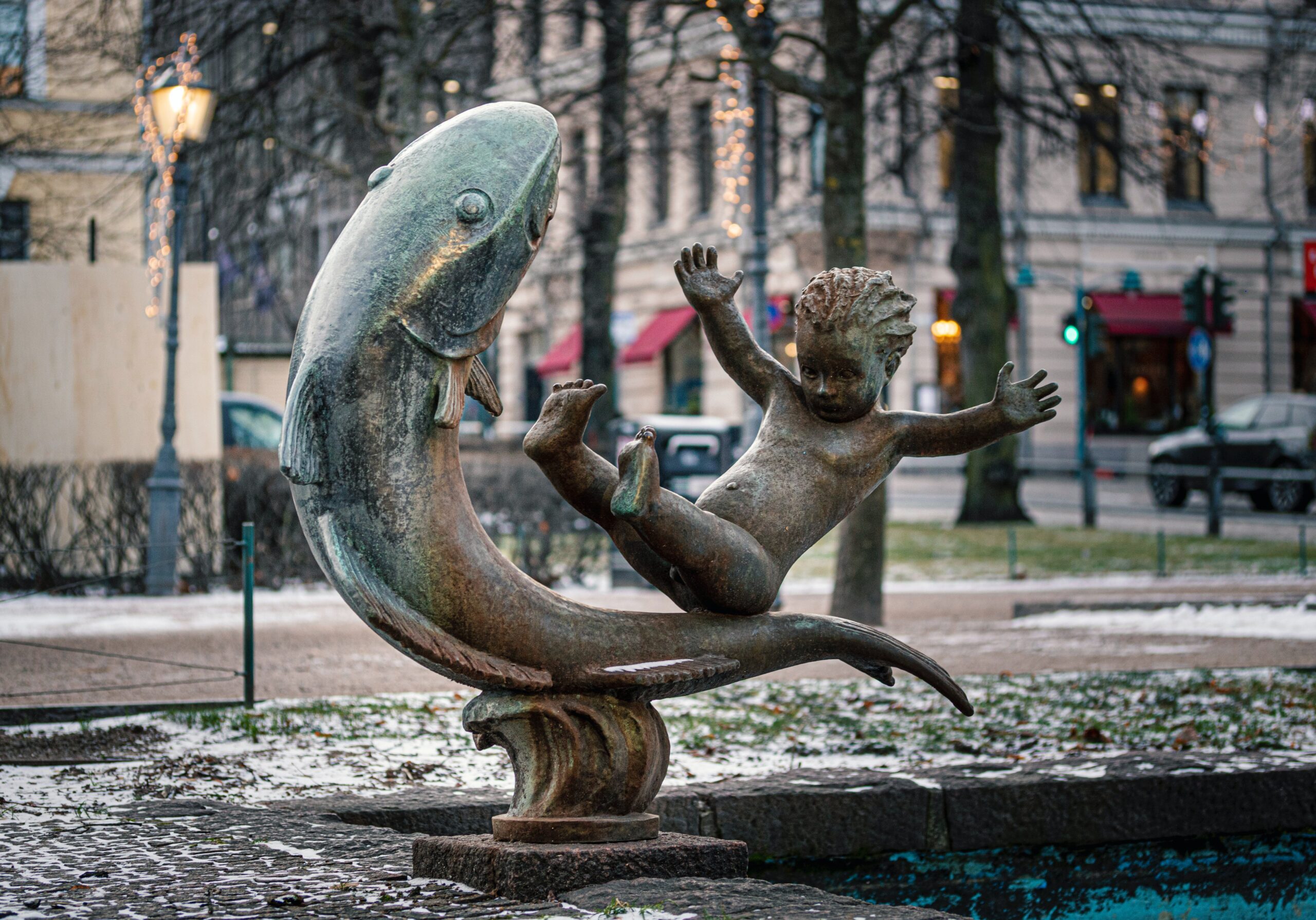
Could you give some information about public transport infrastructure?
A public transportation card to travel freely in Zone A and B costs 43 eu p/m for students. Zone A and B covers the largest part of the city. If you buy a single ticket for public transportation, it costs 3.80 eu. The taxi price from the city centre to my house (30 min. by bus) was around 30 eu, depending on de hour. If you want to visit another city, you have to rent a car or take the train. The train prices vary, depending on the distance. You do get student discount though.
6. Free time
What are must-sees in the area?
A must see when you do an Erasmus in Helsinki, is Lapland. Every semester, trips are organised to Lapland, where you can see the northern lights, see reindeers, drive a snow scooter, do cross country skiing and go snowshoe hiking. Besides, it is nice to travel around to see the Finnish landscape (with all the trees and lakes). Even by just taking the train, you can already appreciate the landscape. But the nicest is to visit a cottage near a lake, only then you get the real Finland experience.
What does not appear in the travel guide, but is worth a visit?
Something that is nice to visit in spring is Seurasaari. This is an island on the western side of Helsinki, where old wooden houses from elsewhere in Finland are placed for visitors to see. It is nice to walk around on a sunny afternoon in between de old houses, green trees and surrounded by sea/lake. Another nice thing to do is to visit the Amos Rex art museum. Every few months there are new exhibitions. Something else that is cool to visit is the Itäkeskus swimming hall. This whole swimming hall is underground. Helsinki is known for underground constructions and therefore it is nice in general to see all the underground facilities there are, including the swimming hall. 
Do you have general tips and tricks about leisure time?
When it is good weather, you can take the city bike to cycle around. It costs 5 euros per day or 10 euros for 7 days. This way you can see parts of the city that you wouldn’t see when travelling by bus. Furthermore, Helsinki has a lot of parks/forest and nice coastline, visiting these by bicycle is a lot of fun.
7. Challenges & best moment abroad
What was a challenge you have experienced?
In the beginning I found it very weird that people didn’t greet you and barely made eye contact on the street. Furthermore, my housemates were a bit closed off in the beginning and always ate in their room. This introverted behaviour made me feel a bit sad and lonely in the beginning. However, ESN is very active in Helsinki and therefore I soon made a lot of friends there. Furthermore, my housemates also started to open up more after some time and taking initiative from my side. I also got to appreciate the personal space you get in Finland, and I am missing it a bit now that I am back in the Netherlands.
What was your best memory abroad?
I don’t just have one best memory, I have many. Lapland was an amazing experience. Living in a country with so much snow was very special. Walking through the Finnish forests, taking a sauna and jumping in the ice cold sea was extremely relaxing. And doing all of that with a lot of lovely people made it even nicer. For me, the whole Erasmus experience in Finland was a “best memory” that I will treasure for life.

